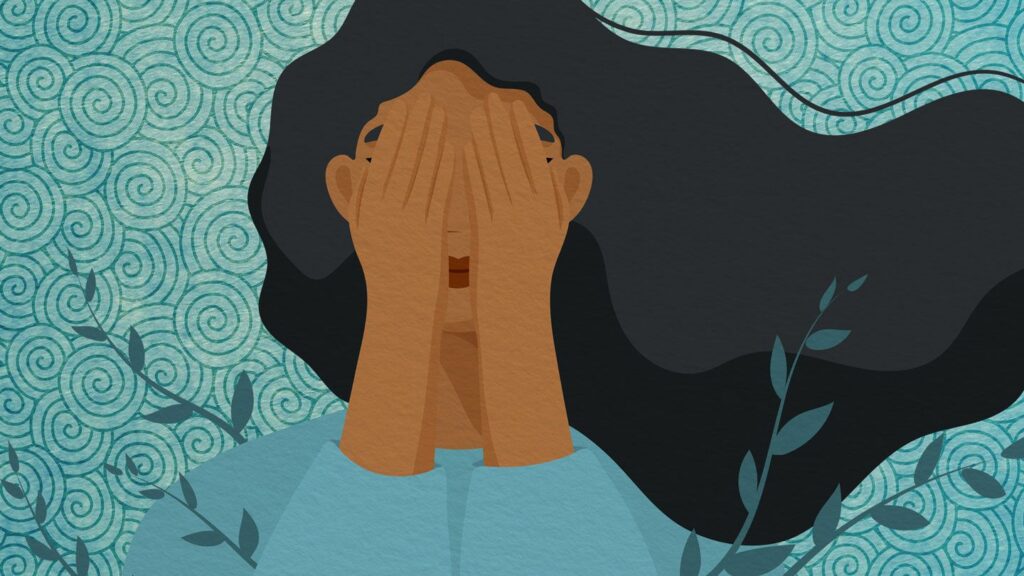Severe stress is a serious medical condition that can have debilitating effects on a person’s life. The most common symptoms of severe stress include difficulty concentrating, forgetfulness, insomnia, anxiety, and depression. The good news is that there are treatment methods available to help people with severe stress cope and manage their symptoms. In this article, we will explore all the various types of treatments available for people suffering from severe stress.
Contents
What Does “Severe Stress” Mean?

Severe stress is defined as a situation in which an individual is overwhelmed and unable to cope effectively with their current stressors. It could be caused by a traumatic event, such as the death of a loved one or major life changes. Other causes can include chronic stress from work or family responsibilities, long-term health problems, financial difficulties, relationship issues, and more.
This is a situation when the individual needs to seek professional help. Severe stress can have a significant impact on a person’s mental and physical health, leading to changes in behavior and mood, as well as an increase in the risk of developing medical conditions such as depression and anxiety.
Fortunately, there are many available treatments for severe stress. While the exact treatment plan should be tailored to an individual’s specific needs, there are several general categories of treatment for severe stress that can provide relief and help the person manage their situation.
Different Types of Severe Stress Treatment
There are many types of severe stress treatment available to those suffering from this debilitating condition. Some of the most common types of treatment include psychotherapy, cognitive-behavioral therapy (CBT), relaxation techniques, medications, and holistic approaches such as yoga and meditation.
Medications

One of the most common treatments for severe stress is medications. These are often prescribed to help relieve some of the symptoms of anxiety and depression.
- Antidepressants, such as selective serotonin reuptake inhibitors (SSRIs), can be effective in helping to regulate mood and reduce feelings of stress.
- Benzodiazepines are also commonly used to treat more intense symptoms such as panic attacks.
- Antipsychotic medications may be used to treat more severe cases of anxiety and depression, although they are not commonly prescribed for stress-related issues.
These medications are also associated with some side effects, so it is important to discuss them with a doctor before starting any treatment.
Other medications that may be used to treat severe stress include anti-anxiety drugs, antihistamines, and beta blockers.
Psychotherapy
Another common treatment for severe stress is psychotherapy. This is often used in combination with medication and can help a person identify the triggers that lead to their stress and learn how to manage them better.
- Cognitive Behavioral Therapy (CBT) is one of the most commonly used therapies for severe stress. It encourages people to challenge negative thoughts and behaviors, as well as identify the underlying causes of their stress.
- Exposure Therapy is another popular therapist-led treatment for severe stress. It involves gradually exposing a person to the thing or situation that causes them fear and anxiety, to reduce their reaction over time.
- Acceptance and Commitment Therapy (ACT) is a newer form of therapy that encourages people to accept their negative thoughts and feelings, rather than trying to fight them.
- Finally, Dialectical Behavioral Therapy (DBT) combines elements of CBT with mindfulness techniques. It helps people learn how to better regulate their emotions, as well as identify situations in which their stress reactions may be heightened.
Support Groups

Another option for severe stress treatment is support groups. These can be either formal or informal groups that provide a safe, nonjudgmental space for individuals to share their experiences with others who may be going through similar things.
Support groups can help people learn coping skills, get advice from others on how they have dealt with their problems, and realize they are not alone in their struggles. Support groups can provide comfort and validation to those dealing with severe stress, as well as a safe place for members to express whatever emotions they’re feeling.
These groups may meet online, in person, or on the phone. Meeting regularly helps participants stay connected and keeps them motivated to maintain healthy coping strategies. Group members can also reach out to each other during times of crisis, which is especially important for those dealing with severe stress.
Holistic Approaches
An additional option for severe stress treatment is to pursue a more holistic approach. This might encompass lifestyle changes such as exercising more, reducing alcohol consumption, and quitting smoking. It also might mean participating in activities like yoga and meditation which can help improve mental health.
Holistic approaches are often coupled with traditional medical treatment such as psychotherapy or medication to create the best outcome. This approach recognizes that mental health is impacted by a variety of different factors and seeks to address them all to achieve true wellness. It takes time, commitment, and dedication but can be an effective way to manage severe stress.
Some holistic approaches also include alternative treatments such as acupuncture, herbal remedies, and massage. While there is limited scientific evidence to support these practices, they can be beneficial in managing stress levels and promoting relaxation.
Pros and Cons of Severe Stress Treatment

Getting help for severe stress can offer several benefits to those who struggle with it, but there are also potential drawbacks.
The pros of seeking treatment for severe stress include :
- One benefit is the ability to identify and understand what is causing your stress.
- An experienced therapist or counselor can help you explore the roots of your stress so that you can better address it. This can lead to improved mental health and resilience over time.
- Another benefit is having someone to talk to. People with severe stress often feel like they’re in a dark place, and talking through their issues with an understanding professional can help them to feel less isolated and more supported.
- Finally, severe stress treatment can be tailored to each individual’s specific needs. Whether it’s talking therapy, medication, or a combination of both – getting the right treatments for your situation can lead to better outcomes in the long run.
The cons of seeking severe stress treatment include :
- One potential downside is the cost. Treatment for severe stress can be expensive, and not everyone has access to affordable mental health care.
- Another disadvantage is that treatment isn’t always successful. While many people do benefit greatly from therapy and medications, there are also cases where these treatments don’t seem to make a difference.
- Finally, some people feel stigmatized when seeking treatment for severe stress, as there is still a lot of misunderstanding and prejudice surrounding mental health issues. This can be especially true in more conservative cultures where talking about one’s emotions is discouraged.
How To Choose The Right Treatment For You?

Choosing the right treatment for severe stress can be overwhelming and difficult. Every person’s experience of stress is unique, so there is no one-size-fits-all solution. However, it is important to remember that many effective treatments are available and that support from a mental health professional can help you find the one best suited to your needs.
Many factors can help you decide which treatment is right for you. These include:
- Personal Preferences
One of the most important things to consider is what works best for you. Different types of treatment may be more or less effective depending on individual preferences such as the type of therapy, lifestyle changes, and medication. It’s important to take time to research and discuss your options with your doctor before making a decision.
- Symptoms
Severe stress can manifest itself in different ways and it’s important to understand the symptoms that you are experiencing. Some treatments may be more effective for certain types of stress, such as anxiety or depression, so it can be helpful to have an understanding of what type of stress you are dealing with before making a decision.
- Availability of Resources
It is also important to consider the availability of resources when choosing a treatment. Not all treatments are available in every area, and some may require extra time or money to pursue. Additionally, certain types of therapy or support groups require referrals from a mental health professional before they can be accessed.
- Cost
Another factor to consider is the cost of the treatment. Some treatments may be covered by insurance, while others may require out-of-pocket payments. It can be helpful to research the cost of different types of treatments.
Conclusion
In conclusion, treating severe stress is an important part of maintaining mental health. While there are several different treatment methods available, it is up to the individual to decide which one will work best for them. Each method has its own set of pros and cons that must be considered before making a decision. With careful consideration, you can find the right type of treatment for your needs and effectively manage your symptoms so that you can live a more fulfilling life free from anxiety and fear.
For more information, please contact MantraCare. Stress can have both physical and mental effects on the body, leading to negative consequences such as anxiety, depression, and even physical illnesses. If you have any queries regarding Online Stress Counseling experienced therapists at MantraCare can help: Book a trial Stress therapy session


